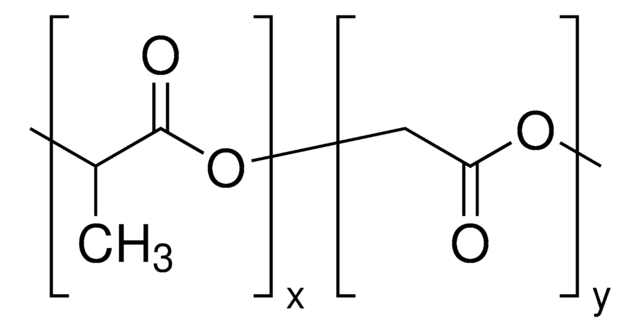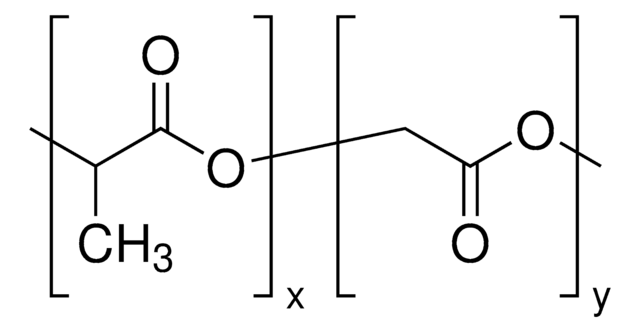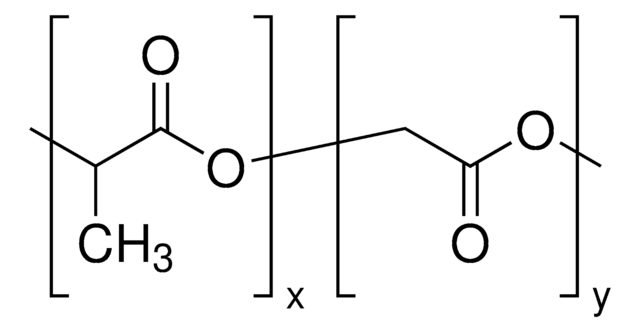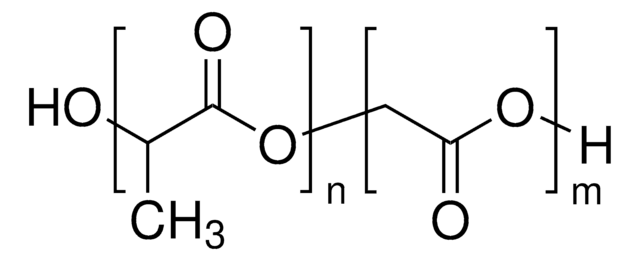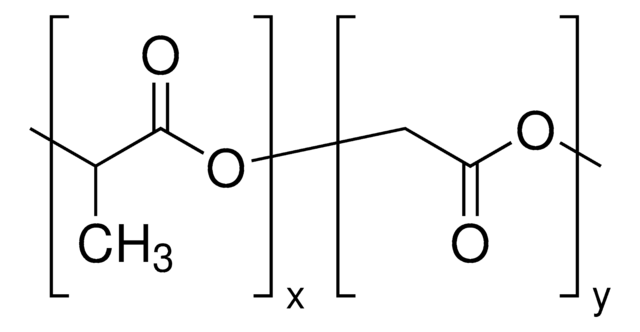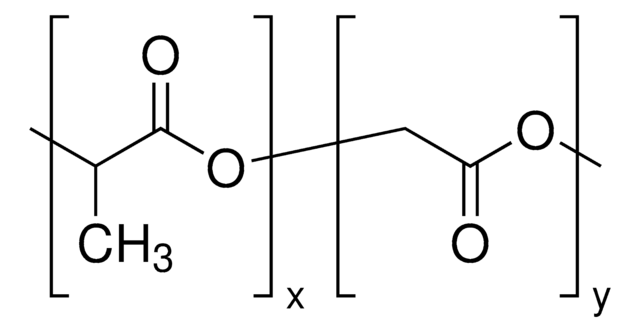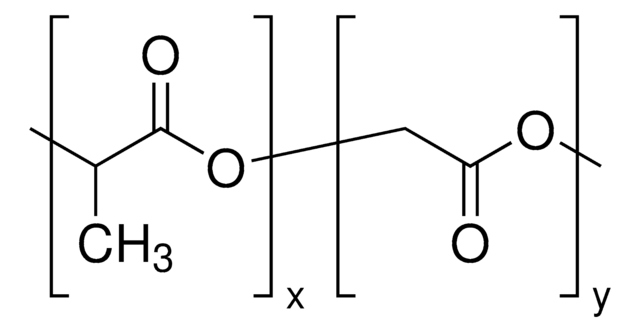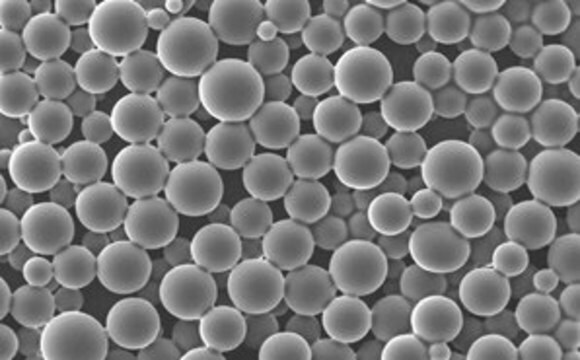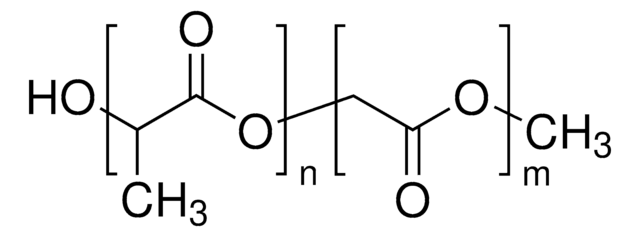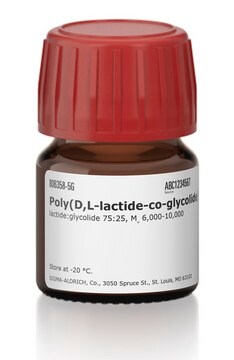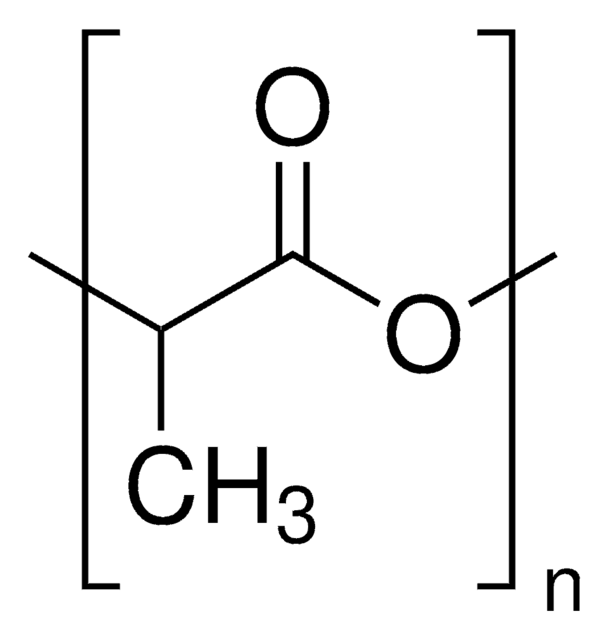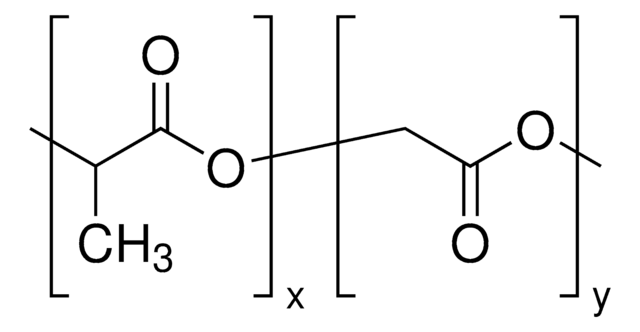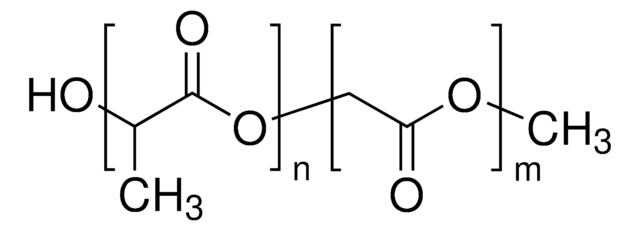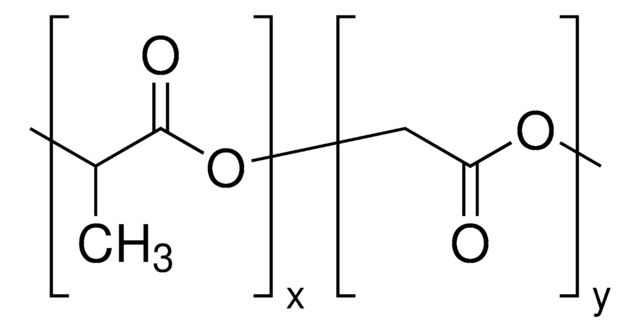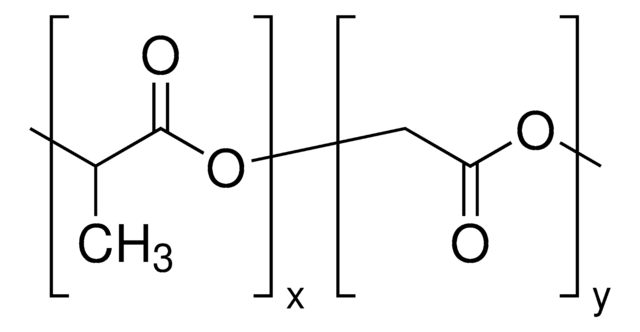719919
Resomer® RG 752 H, Poly(D,L-lactide-co-glycolide)
acid terminated, lactide:glycolide 75:25, Mw 4,000-15,000
Sinónimos:
PLGA
About This Item
Productos recomendados
Quality Level
form
(Powder or Solid or Chunk(s))
feed ratio
lactide:glycolide 75:25
mol wt
Mw 4,000-15,000
degradation timeframe
<6 months
impurities
≤0.1% Sulfated Ash (CONF0010 Conforms)
viscosity
0.14-0.22 dL/g, 0.5 % in chloroform(25 °C, Ubbelohde) (size 0c glass capillary viscometer)
transition temp
Tg 42-46 °C
storage temp.
2-8°C
SMILES string
O2C(C(=O)OC(C2=O)C)C.O1CC(=O)OCC1=O
InChI
1S/C6H8O4.C4H4O4/c1-3-5(7)10-4(2)6(8)9-3;5-3-1-7-4(6)2-8-3/h3-4H,1-2H3;1-2H2
InChI key
LCSKNASZPVZHEG-UHFFFAOYSA-N
Categorías relacionadas
General description
Legal Information
Related product
Storage Class
11 - Combustible Solids
wgk_germany
WGK 3
flash_point_f
Not applicable
flash_point_c
Not applicable
Elija entre una de las versiones más recientes:
¿Ya tiene este producto?
Encuentre la documentación para los productos que ha comprado recientemente en la Biblioteca de documentos.
Los clientes también vieron
Artículos
Interest in utilizing biodegradable polymers for biomedical applications has grown since the 1960s.
The world of commercial biomaterials has stagnated over the past 30 years as few materials have successfully transitioned from the bench to clinical use. Synthetic aliphatic polyesters have continued to dominate the field of resorbable biomaterials due to their long history and track record of approval with the U.S. Food and Drug Administration (FDA).
Aliphatic polyesters such as polylactide, poly(lactide-co-glycolide) and polycaprolactone, as well as their copolymers, represent a diverse family of synthetic biodegradable polymers that have been widely explored for medical uses and are commercially available.
Aliphatic polyesters such as polylactide, poly(lactide-co-glycolide) and polycaprolactone, as well as their copolymers, represent a diverse family of synthetic biodegradable polymers that have been widely explored for medical uses and are commercially available.
Global Trade Item Number
| Número de referencia del producto (SKU) | GTIN |
|---|---|
| 719919-1G | 4061832855479 |
| 719919-5G | 4061832855486 |
Nuestro equipo de científicos tiene experiencia en todas las áreas de investigación: Ciencias de la vida, Ciencia de los materiales, Síntesis química, Cromatografía, Analítica y muchas otras.
Póngase en contacto con el Servicio técnico